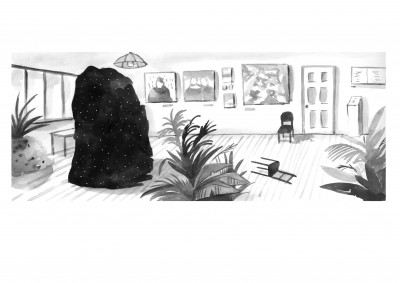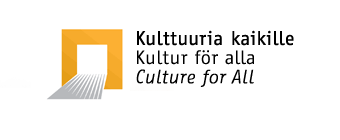
Diversity Agents and their work
Arlene Tucker is the coordinator for the Diversity Agent 2.0 course. Arlene's own work as an artist, educator and diversity agent is realized through installation and dialogical practices.
Self reflection as a starting point
What are all the nuances between to embrace and to embody? Between engaging and activating? Between listening and being heard? I come from the perspective that by trying to understand one’s own meaning making process in context to where one is physically and emotionally, we can begin to decolonize, empathize, and truly practice self-care. This takes work, a lot of work. For structural racism and inequalities to fully stop, I feel that every individual needs to examine and to be active participants in order for the collective society to make changes.
The evolution of equity work
Diversity, Equity and Inclusion (DEI) work has been around at least in the United States since the 60s. It has evolved in form, language and concept since then yet it seems still true as author Janice Gassam Asare points out that, “When DEI practitioners and anti-racism educators are hired into companies and institutions, the core curriculum typically centers around helping the white majority learn and understand racism.” Shifting the focus to identifying and supporting the needs of all genders and people belonging to different minorities, regardless of e.g. gender identity, ethnic background, ability status, sexual orientation, religion or age is essential.
The first group of eleven
Diversity Agents in Finland graduated in 2019. The course debuted in
2019 and was part of the Avaus (Opening) projects (2017-2019) run by
Culture for All Service in cooperation with Globe Art Point (G.A.P.) and
the Center for Cultural Policy Research Cupore. The aim of the project
was to support the equal participation of non-Finnish-born cultural
workers and artists in the Finnish arts and culture sector. In the first
phase of the Avaus project the employment of non-Finnish-born cultural
workers and artists was mapped through a research project carried out by
Cupore, through job shadowing observation carried out by the Culture
for All Service and through the expertise of G.A.P.’s members.
In Diversity Agent 2.0 course: Strengthening and Advancing Anti-Racist Practice, which will run from September 2021 to February 2022, we aim to raise awareness of our past and present as a means to move forward and more effectively to work towards an equitable society. Lectures will be given by forces in the field such as Ceyda Berk-Söderblom, Sepideh Rahaa, Shadia Rask, and representatives of Ruskeat Tytöt, G.A.P. Culture for All Service and Cupore. We will also have a Sociocracy workshop facilitated by Jerry Koch-Gonzalez, and every participant will hold a clinic with an arts and culture association in Finland. During the course, we will keep Asare’s point in mind, “If change will ever be made, DEI practitioners and anti-racism educators must resist the urge to water down diversity education to placate white feelings.” With that said, I welcome a critical approach of ourselves and of each other from the standpoint of wanting to best support and help each other in these times of necessary growth. As we put theory into practice, we will strengthen our voice, skills, and network.
Variety of voices
I asked Diversity Agents from the class of 2019, “How has being a Diversity Agent supported the work that you do?” The range of responses gives insight to the diverse group we had and to the myriad ways one can be a Diversity Agent and apply the work to practice and to our communities.
“From my part I can mention that inclusion matters first. As an event producer I have to think about diversity and inclusion every time I have to evaluate the level of participation from different community groups, etc. Working in the project Culture Kids I was dealing with publicity and marketing focused on the most difficult language minority groups, so they would be aware of the project and their possibility to participate.”
-Tatiana Solovieva / Татьяна Соловьева, Freelance producer & Diversity Agent
“By becoming a diversity agent, you belong to an open, mutual help, ethically responsible and critical community.”
-Pablo Alvarez, Clown & Diversity Agent
“Being a diversity agent gives me a better understanding of the difficulty foreign artists in Finland face. Through getting to know other people like me, I am able to expand my network and get a grasp of the initiatives in place that advocate for better diversity.”
- Sheung Yiu / 姚尚勤, Image-based visual artist, Researcher, Writer & Diversity Agent
“The course offered theory and practice tools where we could focus on various levels of local and national perspectives. Our learning process was with and from experts, decisions makers and academics. This gave us the possibility to build a new network about diversity in the culture field. It has helped me to reflect and act with more tools and points of view in order to make recommendations, decisions and to build new spaces from a more integral and inclusive children's culture.”
-Laura Gazzotti (Lau), Artistic Director of Kolibrí Festivaali & Diversity Agent
Advancing together
Culture for All Service is partnering with G.A.P. to bring the Diversity Agent 2.0 course to a wider audience across Finland from August 2021 to February 2022. Kemê Pellicer is the G.A.P. artist that will be supporting the course participants alongside myself, the course coordinator. Pellicer and I were graduates of the first Diversity Agent course and have since been applying DEI tools to our teaching and art practice on both local and international levels. How one applies diversity, equity, inclusion, antiracism and accessibility training is very personal and extremely broad, but the aim is to build more understanding and to stop harmful and unjust patterns within ourselves and within society.
A lot of work, effort, and awareness still
needs to be realized in order to move towards an equitable society and
this especially rings true for the BIPOC community as well as people
belonging to different minority groups. During these next few months in
the Diversity Agent 2.0 course, my guiding light and inspiration is to
find ways to connect, make voices heard, listen with and from each
other. As we discover our own unconscious biases, I feel it is extremely
important that we have a trusted community to engage in dialogue
and reflection. We hope to co-create a safer space in which all of us
can be a sounding board for one another and that we can push each other
forward with compassion and directness and in a sense, be each other’s
accountability partner. The diverse lineup of lecturers, workshop
facilitators accompanied with clinics that Diversity Agents will
facilitate with an arts and culture organization will strengthen and
advance our skills and give us practical tools to stop racism.
Resources:
